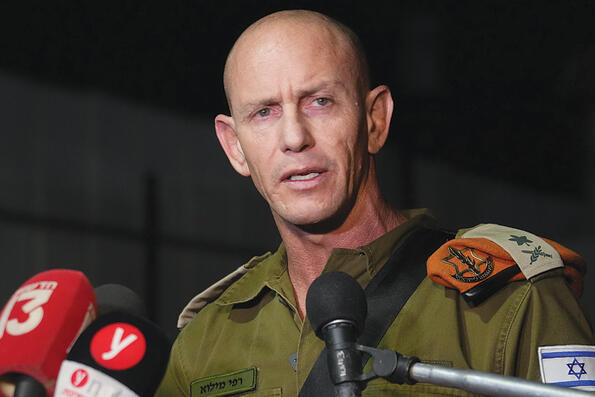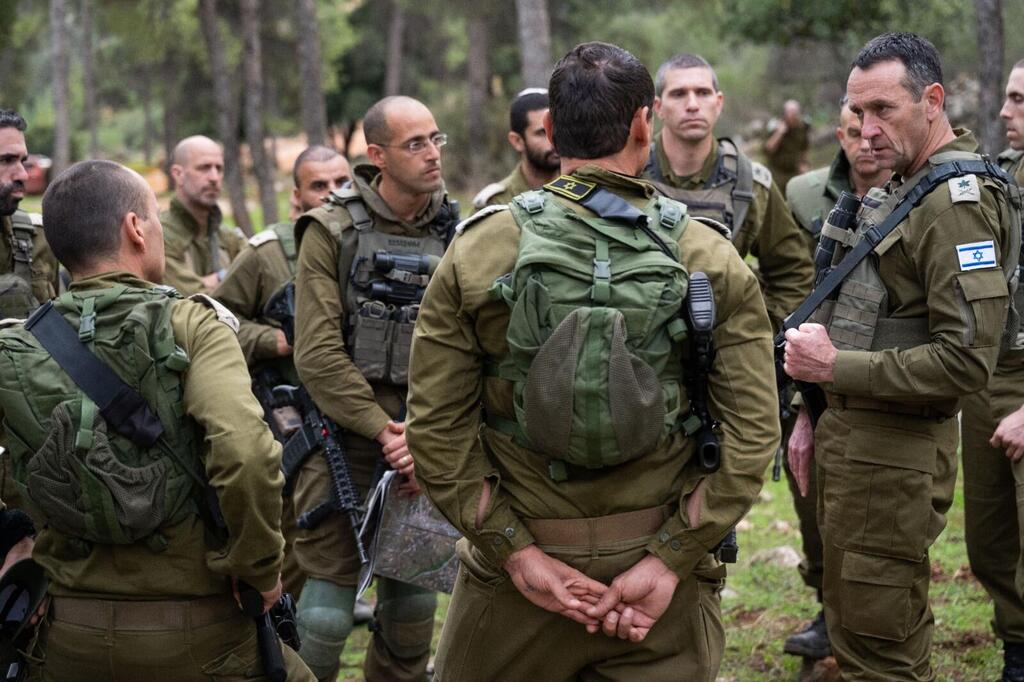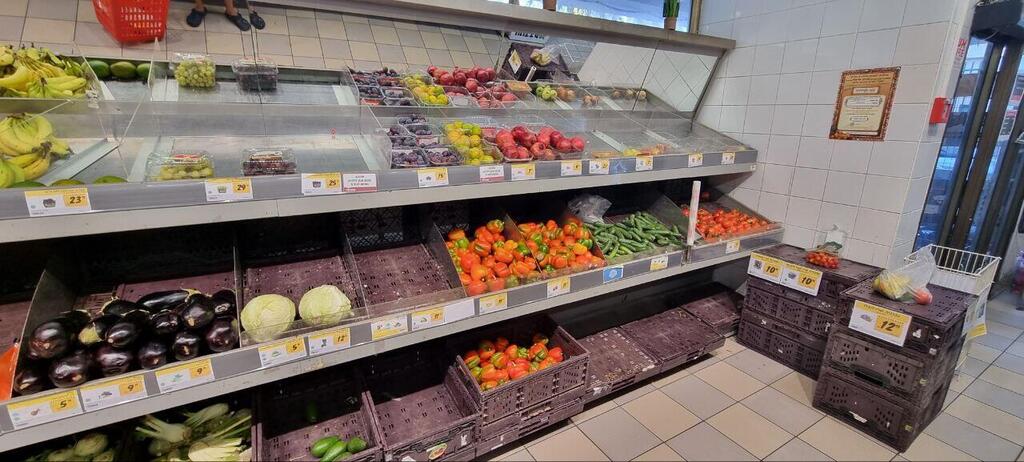Getting your Trinity Audio player ready...
In recent weeks, tensions between Israel and Hezbollah have been steadily rising, raising concerns over the potential escalation of the conflict. While the intensity of the skirmishes on the northern border may not have drastically changed, it is becoming increasingly apparent that this situation has the potential to spiral out of control. Both sides may not be actively seeking an all-out war, but the growing suspicion and mistrust between them is palpable.
Read more:
Adding to the escalating tensions, last weekend, reports surfaced in Lebanese media suggesting that Israel was preparing for an attack against Hezbollah. Such publications, whether based on truth or not, have the power to create additional strain and anxiety. They can impact the preparedness and response of Hezbollah as an organization, potentially pushing them into an emergency mindset. Furthermore, they can instill a sense of heightened vigilance among the population in Lebanon, mirroring the current state of affairs in Israel.
At present, an announcement has been made regarding the Home Front Command's consideration of a unique campaign aimed at enhancing preparedness for potential conflict in Lebanon. While it is crucial to ensure the readiness of the Israeli public, this decision has the potential to generate speculation on the opposing side, particularly considering Israel's lack of interest in war and its pursuit of diplomatic solutions, much like Hezbollah.
In the past decade, high-ranking officials in the IDF grappled with a dilemma concerning how to effectively communicate the threat posed by Hezbollah in the northern region, a threat that could potentially escalate into a full-scale war. The central question revolved around the appropriateness of publicly disclosing the severity of the threat, with the intention of aligning public expectations, raising awareness, and bolstering the preparedness of the home front. However, there was also an understanding that publicizing such scenarios could potentially incite panic and inadvertently provide security advantages to Nasrallah by undermining Israeli deterrence.
Over the years, various proposals have been put forth for communication campaigns involving the Home Front Command, akin to the ones familiar to us for preparing bomb shelters or creating protected spaces within homes. These proposals included hypothetical scenarios that outlined the possession of 150,000 rockets by the terrorist organization in Lebanon, the capacity to launch over 4,000 rockets daily during regular combat, precision missile capabilities, attack drones, and more. Some of these capabilities are currently being observed along the northern border. Ultimately, after careful consideration, the Chiefs of Staff, to whom these proposals were presented, made the decision not to instill fear in the public.
The Home Front Command is currently grappling with the challenging decision of whether to launch a campaign to prepare the public for the possibility of war. The dilemma lies in the understanding that such a campaign, even in the absence of concrete intelligence indicating Hezbollah's intention to initiate hostilities, could increase preparedness while simultaneously instilling panic among the public.
In recent months, the uncertainty and tensions in the northern region have given rise to numerous conjectures and speculations regarding the potential consequences for the Israeli home front in the event of a conflict with Hezbollah. Advocates for coordinating expectations with the public include local authorities in the north, particularly with upcoming elections on the horizon. These authorities have already expressed their concerns about the security situation and have requested preparations to be made to enable the population to effectively confront the threat of a large-scale attack on Israel.
It's crucial to remember that we're no longer in October 6 when examining the weighty question at hand. While the public discourse understandably centers around the events in Gaza, we must acknowledge that the security situation on the home front has shifted. With the IDF's active presence in the Strip, the firing toward southern communities has significantly decreased, and in recent weeks, the majority of the attacks have been directed toward the northern communities.
Moreover, it's worth highlighting the notable shift in the public's mindset. Since the war broke out, residents have gained a deep understanding of the potential repercussions of a conflict in the north. Hundreds of thousands have already taken the initiative to evacuate or seek refuge elsewhere, fully aware of Hezbollah's capabilities and the responsibilities that come with a full-scale conflict.
Throughout the ongoing war, the Home Front Command has taken reasonable measures to equip citizens with the necessary tools to confront missile and rocket attacks, infiltration attempts, and terrorist incursions. Remarkably, the number of casualties on the home front has remained remarkably low compared to the sheer volume of missiles fired towards Israel. This undoubtedly reflects the public's attentiveness to instructions, which play a critical role in safeguarding the home front.
But how can we overlook the events of October 9, just two days after the war began, when the Home Front Command issued an instruction for all residents to stock up on food and water for 72 hours? Within a short span of time, the sight of an entire nation emptying the shelves of grocery stores sparked widespread criticism towards the Home Command, including my own. However, today we have come to realize that, at that time, according to reports in the Washington Post, a war with Hezbollah was closer than ever before. The planes were already in the air, poised for an attack, and had such a campaign erupted, the guidance provided by the Home Front Command would have undoubtedly saved lives.
It is important to emphasize that the official guidance provided by the Home Front Command regarding war preparedness carries significant weight. Not only does it have the potential to induce public panic, but it can also result in shortages in the market and undermine the public's trust, which is a delicate aspect of the relationship between the authorities and the military. As a result, the IDF conducts daily assessments and continuously evaluates the defense policy for the home front. In the event of a specific warning, the security system, facilitated by the Home Front Command, promptly coordinates expectations with the public and prepares them for a protracted conflict.
Furthermore, we have learned from history that public memory is fleeting. Despite discussions surrounding the possibility of a northern conflict on multiple occasions in recent years, its impact on the residents has been relatively insignificant. Even if expectations are coordinated, particularly given the present circumstances, it is highly likely that these concerns will fade quickly from people's minds. Therefore, it appears unnecessary to instill fear in the public and prepare them for an event that remains uncertain in terms of timing and occurrence.
Major General Rafi Milo of the Home Front Command shoulders a significant responsibility as he formulates a recommendation for the next course of action. The question at hand is whether the public already comprehends the gravity of the threat, or if a campaign is necessary that clearly presents its advantages and disadvantages. Given the sensitivity of the matter, such a campaign would also require approval from Chief of Staff Herzi Halevy and Defense Minister Yoav Gallant. Moreover, it is essential to acknowledge that any such campaign must include the coordination of expectations regarding the consequences for Hezbollah and the state of Lebanon resulting from the war.
It is worth mentioning at this stage that any campaign of this nature will inevitably impact the home front in Israel. However, the public should be aware that the IDF has made significant advancements in its firepower capabilities, both from the air and the ground. The strikes this time will involve precise bombs, rockets, and an enhanced defense system. It is crucial to note Beirut lacks an Iron Dome or a miraculous solution to intercept these attacks.







